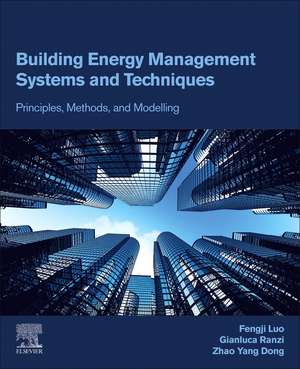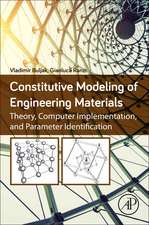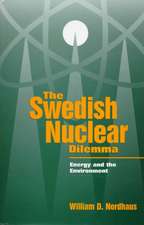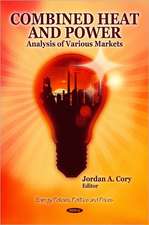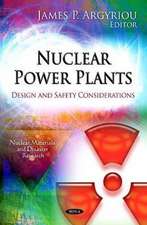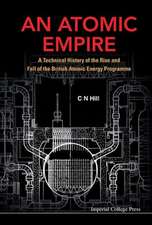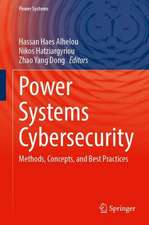Building Energy Management Systems and Techniques: Principles, Methods, and Modelling
Autor Fengji Luo, Gianluca Ranzi, Zhao Yang Dongen Limba Engleză Paperback – 21 feb 2024
The authors explore the basic concepts related to building energy management systems and put them into the context of smart grids, demand response and demand-side management, internet of things, and distributed renewable energy. Advanced topics provide the reader with an understanding of various energy management scenarios and procedures for modern buildings in an automatic and highly renewable-penetrated building environment. This includes a range of energy management techniques for building-side energy resources such as battery energy storage systems, plug-in appliances, and HVAC systems. The fundamental principles of evolutionary computation are covered and applied to building energy management problems. The authors also introduce the paradigm of occupant-to-grid integration and its implementation through personalized recommendation technology to guide the occupants’ choices on energy-related products and their energy usage behaviors, as well as to enhance the energy efficiency of buildings. The book includes several application examples throughout, illustrating for the reader the key aspects involved in the implementation of building energy management schemes.
Building Energy Management Systems and Techniques is an invaluable resource for undergraduate and postgraduate students enrolled in courses related to energy-efficient building systems and smart grids and researchers working in the fields of smart grids, smart buildings/homes, and energy demand response. The book will be of use to professional electrical, civil, computing, and communications engineers, architects, and building energy consultants.
- Integrates the latest techniques in the building energy management paradigm, such as appliance scheduling, peer-to-peer energy trading, and occupant-to-grid integration
- Provides extensive application examples to help readers understand the design principles of different building energy management systems
- Includes step-by-step guidance on the methods, modeling techniques, and applications presented in the book, including evolutionary computations
- Provides pseudocodes and optimization algorithms for the application examples to enable the reader to gain insight into the modeling details
Preț: 634.34 lei
Preț vechi: 827.37 lei
-23% Nou
Puncte Express: 952
Preț estimativ în valută:
121.39€ • 131.82$ • 101.97£
121.39€ • 131.82$ • 101.97£
Carte tipărită la comandă
Livrare economică 15-29 aprilie
Preluare comenzi: 021 569.72.76
Specificații
ISBN-13: 9780323961073
ISBN-10: 032396107X
Pagini: 332
Dimensiuni: 191 x 235 x 23 mm
Greutate: 0.68 kg
Editura: ELSEVIER SCIENCE
ISBN-10: 032396107X
Pagini: 332
Dimensiuni: 191 x 235 x 23 mm
Greutate: 0.68 kg
Editura: ELSEVIER SCIENCE
Public țintă
Postgraduate and advanced undergraduates enrolled in courses related to energy-efficient building systems and smart grids, and researchers working in the fields of smart grid, smart building/home, and energy demand response. Electrical engineers, civil engineers, building energy consultants, computing and communication engineers.Cuprins
1. Introduction to Building Energy Management Systems
2. Emerging Energy Resources in Modern Buildings
3. Information Infrastructures for Modern Buildings
4. Power Demand Response and Demand Side Management
5. Building Energy Management Systems (BEMSs)
6. Optimization and Evolutionary Computation
7. Energy Management of Non-Thermostatically Controlled Appliances
8. Energy Management of Thermostatically Controlled Appliances
9. Energy Sharing Among Buildings10. Building-to-Grid Integration
11. Microgrids
12. No C Occupant-to-Grid Integration
2. Emerging Energy Resources in Modern Buildings
3. Information Infrastructures for Modern Buildings
4. Power Demand Response and Demand Side Management
5. Building Energy Management Systems (BEMSs)
6. Optimization and Evolutionary Computation
7. Energy Management of Non-Thermostatically Controlled Appliances
8. Energy Management of Thermostatically Controlled Appliances
9. Energy Sharing Among Buildings10. Building-to-Grid Integration
11. Microgrids
12. No C Occupant-to-Grid Integration
